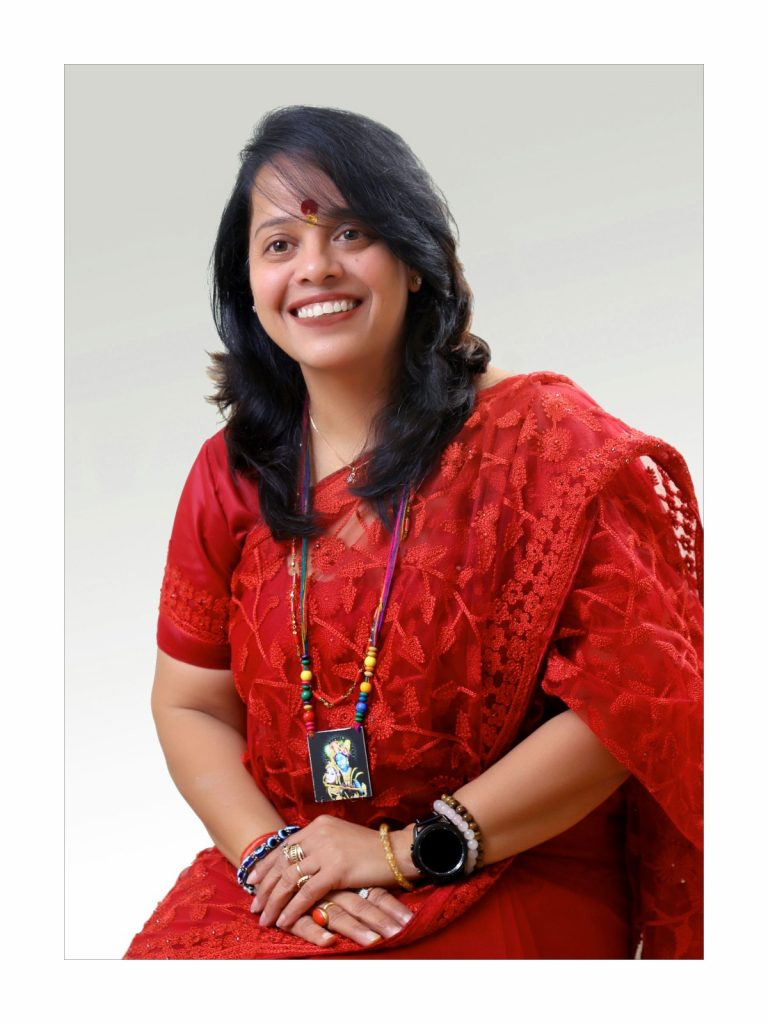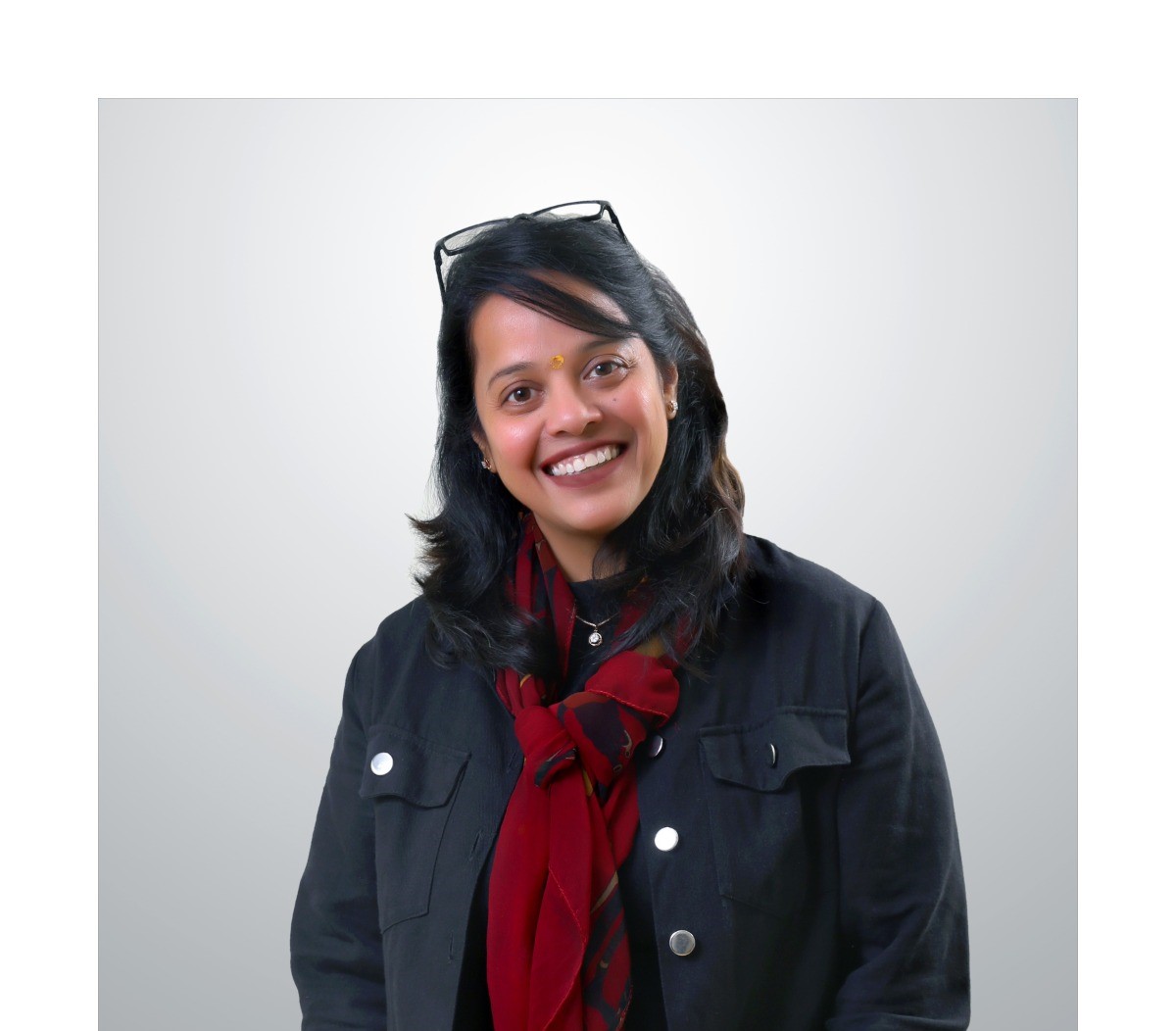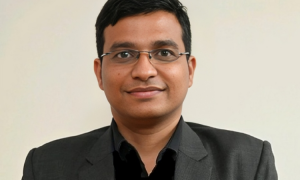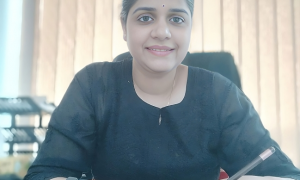This interview has been published by Namrata Singh and The SuperLawyer Team

Can you share with us your journey from your days in law college to becoming the esteemed Founder and President of the VidAikyam Foundation, the only Indian on the global expert register of UN Women, and a renowned consultant in climate change, disaster risk reduction, and gender justice? What were some of the significant challenges you encountered along the way, and how did you navigate through them to achieve your current stature?
My learning journey is astounding. I underwent three distinct phases of higher education, which spanned over a considerable period and were interspersed with different stages of my professional life. Firstly, I obtained a graduation degree in Political Science Hons and a Master’s degree in Political Science from Indraprastha College for Women, University of Delhi. I then went on to pursue my law degree from the prestigious Campus Law Centre Delhi, University of Delhi. This was the first phase of my college days. The second phase of my career commenced when I took a sabbatical to raise my son. During this time, I earned my LLM degree with a specialization in Intellectual Property Rights from Guru Gobind Singh Indraprastha University, Delhi. I was a year topper and ranked 2nd in overall LLM results, with a 1st division with distinction. Finally, I enrolled in a PhD program at Amity University, Noida, marking the start of my third phase of college life. My PhD is focused on climate change. I have had a lifelong commitment to learning and have earned 5 degrees along with 11 certificates and diplomas to upskill myself in gender inclusion, disaster and climate change. Each learning experience has been enriching in its way, occurring during various phases of my life. During the first phase, I enjoyed a fun-filled campus life, made friends from all over India, and had the honour of being taught by some of the most learned professors in India. It is my pleasure to share that I ranked third in the entire Delhi University in MA Political Science, as well as second in my college. The second and third phase of my education was a bit of a challenge, as I balanced the demands of my studies with my responsibilities as a parent to a young child. However, I was able to navigate this challenge and maintain a balance between both roles.
Throughout my career, I have been fortunate enough to work as a penal advocate for various departments, representing independent clients in the Supreme Court of India and the High Court of Delhi. I was a consultant to the CCIM statutory body of the Ministry of AYUSH for Indian Medicines. As I pursued my research degree, I began writing research articles, and to this day, I have authored and edited 4 books, 5 chapters, and over 55 articles in peer-reviewed journals of international and national repute.
I take immense pride in my outstanding achievements in the field of disaster and climate law, which have paved the way for me to secure coveted international consultancy roles with various United Nations agencies. Being a part of the exclusive UN Women and WRD expert register, and being the only Indian among just 67 experts from around the world, unequivocally accentuates my unrivalled expertise at the international level. https://wrd.unwomen.org/engage/experts/lipika-sharma Although building my credentials in the international arena was a tough and time-consuming task, I was able to meet the stringent standards and requirements of working with such esteemed organisations through my dedication and hard work. However, I remain humble and acknowledge that I have a lot of work to do and much to learn. I am passionate about empowering women and children, and I have already trained over 20,000 employees as a POSH trainer. Establishing the VidAikyam Foundation to pursue my passion for gender inclusion, women empowerment, climate change, and disaster management was a dream come true for me. Despite the challenges, I was able to balance my personal and professional life successfully, and I am grateful to God for this blessing.
Congratulations on your recent achievements and awards! How do you plan to leverage your experience and expertise in your new role as G100 India Chair- Sustainable Development Goals (SDGs)?
Thanks very much for your wishes. My tireless efforts and contributions have been recognized for having a significant impact on improving the world. In January 2024 I was appointed as the India Chair of SDGs. G100 is an empowered group of 100 women leaders from across the world, and 100 Country Chairs for powerful advocacy, awareness & impact across governments and organisations for a gender-equal future. As the India Chair of SDGs and Founder of VidAikyam Foundation, I am committed to working at the grassroots level to uplift women and children, with a focus on SDG 4 quality education, SDG 5 gender equality, SDG 10 reduced inequality, SDG 13 climate action, and SDG 17 partnerships for the goals. Through my partnerships with international and national NGOs, I am confident that we will work together to create a real and lasting change. As an established leader, I have entered into Memorandums of Understanding (MOUs) with leading non-governmental organizations (NGOs) to work collaboratively towards the achievement of our shared objectives. I am confident that my partnerships with these women, combined with my unwavering commitment, will enable me to make a genuine difference in the lives of those most in need. In conclusion, I am confident that my work will continue to make a meaningful impact, and I am committed to working tirelessly towards the achievement of my objectives. I am humbled to state that I have received 7 awards and the most prestigious are by UNDP Global Compact and Women Economic Forum among other awards of National and International repute.
Your dedication to gender justice, disaster relief, and climate change is commendable. What inspired you to establish the VidAikyam Foundation, and what impact do you hope it will have on communities, especially concerning women’s empowerment?
I am deeply grateful and humbled by your appreciation. My passion for women’s causes and empowerment knows no bounds. I have been working with various organizations at the grassroots level in India and collaborating closely with international organizations dedicated to the cause of women. My focus is on the areas of disaster and climate, where women are the main stakeholders but still not the main contributors when it comes to designing and implementing solutions. I am confident in my ability to provide top-notch consultancy services to UN bodies and international consultancies. The thought that my contributions can make a meaningful impact on international policy framing, is an incredibly empowering feeling. I am proud to be able to take part in this process. With my extensive global connections and my strong grounding in India through the VidAikyam Foundation, I am working assiduously to amplify the voices of indigenous women in disaster and climate areas. As the Founding Director of the VidAikyam Foundation, I am committed to educating and empowering girls and women, particularly in climate education, so that they are aware of government policies and can confront the issue of sexual harassment and other pressing issues of society with confidence. I am trying to do my bit to achieve SDG 5.
Your international experience includes consultancy for UN agencies and participation in prestigious conferences like UNFCCC COP. Could you give insight into your prominent consultancies with UN bodies and share some insights into the challenges and opportunities you’ve encountered while working on a global scale?
I am an active member of the Women and Gender Constituency (WGC) one of the nine stakeholder groups of the United Nations Framework Convention on Climate Change (UNFCCC). I am also an active member of GenderCC, a Germany-based women’s organisation working in the focus area of Women for Climate Justice, a global network of organisations, experts and activists working for gender equality, women’s rights and climate justice. I have been nominated to participate in the Conference of Parties (COP) of the UNFCCC to put forth my view on women and gender issues in December 2023 and, in June 2023 for SB 58 of the core body meeting of UNFCCC before COP in Bonn Germany in June by the United Nations. My recent participation in COP28 allowed me to raise awareness for the cause of gender and women’s inclusion in the climate change space, ensuring that our voices were heard loud and clear as one of the main stakeholders. But the biggest challenge of climate change is that women and girls are disproportionately affected. There is a lack of representation in official delegations of member countries and negligible representation of women in the secretariat. There is a persistent gender gap in leadership roles in matters of global significance like disaster and climate change. Only 10% of women representation in COP raises the question of whether the diverse voices of women are genuinely heard and incorporated into climate policies.
I provided legal consultation to support an IFRC project in 2023 that aimed to map the disaster laws and public health emergency regulations in the ASEAN region and advised the ASEAN secretariat. (the report is under publication). I undertook case study research for a UN Women in 2022 for the Commission on Status of Women CSW66 Background Paper “Empowering Women in Climate, Environment, and Disaster Risk Governance: from National Policy to Local Action” The focus of my research was a case study on gender in ecosystem-based adaptation and local governance.
I worked pro bono with UNDP and was among the two lawyers selected to contribute to a global report on Disaster Risk Reduction. These experiences have taught me that with unwavering determination and hard work, anything is possible. The report was published in my name and is available online on the link given below:
To build my international and consultancy profile with various UN bodies, IFRC (Red Cross), and International Consultancies, I had to burn the midnight oil, do a lot of upskilling and reading and sometimes work 16-18 hours to meet tight deadlines. Although it was challenging to secure these consultancies, I persevered and developed a knowledge base that is par excellence and matched the profile needed to contribute at the international level to policy framing and giving legal opinions to these esteemed bodies. I have had the privilege of meeting wonderful people and making great friends globally who have done a lot of hand-holding and have guided and supported me throughout this journey. It has been an enriching learning experience, and I have picked up more than 11 short-term certificate and diploma courses to upskill myself. I am still eager to learn more and make a significant impact on gender inclusion and women empowerment in the focused area of disaster and climate.
Your recent consultancy work with UNDRR focused on gender-related dimensions of disaster risk reduction. How do you see the role of legal frameworks in addressing such complex issues, especially in a changing climate scenario?
My recent publication is 2023 consultancy services to the United Nations Office for Disaster Risk Reduction (UNDRR) Switzerland, on” Scoping Study on the Use of Convention on the elimination of all forms of discrimination against women (CEDAW) General Recommendation No. 37 on Gender-Related Dimensions of Disaster Risk Reduction in a Changing Climate.” was published by UN on October 19, 2023. This report aims to reinforce the foundations of gender-responsive approaches to disaster risk by examining the connection between women’s international human rights and disaster risk reduction (DRR). It also focuses on analysing gaps, challenges, and good practices in States parties reporting on DRR into the CEDAW Secretariat. The CEDAW Convention provides strong standards for equality and non-discrimination for all women, and it is legally binding. It is often described as an international bill of rights for women.
https://www.preventionweb.net/media/90871/download?startDownload=true
I have recommended that the equal representation of women in forums and mechanisms on disaster risk reduction and climate change, at the community, local, national, regional and international levels, is necessary to enable them to participate in and influence the development of policies, legislation, and plans relating to disaster risk reduction and action on climate change and their implementation. The report emphasizes the importance of substantive equality and non-discrimination as a prerequisite for empowering women and girls through specialized policies, initiatives, and strategies and to enable them to exercise their right to obtain access to knowledge about climate change and DRR.
Women are at the forefront of the disaster and climate atrocities. They are the ones who are hit before and after the most in all aspects of life, yet they are the ones who are left outside of the most crucial brainstorming. Hence, it is essential to ensure their voices are heard. I am glad that India has taken long strides on the long bumpy road to give reservations to women by amending the constitution and ensuring the representation of women in the lowest ladder of democracy. This move has ensured that women’s voices are heard and considered in all-important decision-making processes to make a real change.
You’ve received recognition for your innovative teaching methods. Can you share a particularly effective teaching technique or strategy that you believe has had a significant impact on your students’ learning outcomes?
As a seasoned law professor, I firmly believe that practical experience is crucial for students to gain a comprehensive understanding of the legal profession. In my opinion, legal education should have a stronger focus on practical aspects, and industry professionals and litigators should be given more respect and recognition in curriculum drafting and delivery. It is essential to incorporate regular classes with practitioners and industry experts to bridge the gap between theoretical knowledge and practical experience. Although internships are beneficial, they cannot replace the value of classroom learning. Essentially the classroom teaching for all subject papers taught shall imbibe the practical aspects with a focus on reading bare acts and judgments more than reading books to get good grades. The questions in the examination shall be more problem-based than theory-focused.
Furthermore, legal education must emphasize the importance of legal drafting and public speaking skills in real-life scenarios. Instead of relying solely on moot courts, which do not accurately reflect litigating scenarios, we should prioritize teaching students the actual skills they will need in their legal careers. For instance, students should be taught to focus more on how to draft real legal documents rather than just memorials for mooting.
While significant progress has been made in legal education, there is still much more work to be done to reduce the gap between classroom learning and real-life experiences.
In your extensive experience conducting training sessions on the prevention of sexual harassment of women at the workplace (POSH), what common misconceptions or questions have you come across from participants, and how do you address them to foster a better understanding of this critical issue?
I am incredibly passionate about promoting gender justice, gender sensitization, and gender equality in the workplace. As a corporate trainer, I have trained more than 20,000 people and conducted 200 plus workshops in the Prevention of Sexual Harassment at the Workplace (POSH) with a specific focus on Indian Law. My workshops and training sessions have been incredibly impactful for corporates, PSUs, universities, and organised as well as unorganised sectors. I am external member of various IC committees in different sectors.
One of the most common misconceptions I come across is that staring or appreciative looks at women and giving unwanted compliments are not considered sexual harassment. I understand that this can be a difficult concept to grasp, which is why I strive to create a supportive and non-judgmental environment during my training. I believe that by encouraging people to understand the impact of their unwelcome behaviour by women colleagues, we can create meaningful change. Another misconception is that it is a woman favouring legislation though the fact is that it’s a balanced legislation and gives equal opportunity to both parties. Another misconception which is very common is that the complaint before IC may linger on for long. I always stress that the legislation has clearly given a time frame of 90 days in the legislation hence order has to be passed within this time frame.
As a POSH trainer for BSES Rajdhani Power Limited, I feel privileged to have the opportunity to train over 20,000 employees. I have also been an active member of the University level Internal Complaint Committees and introduced a 2-credit course in POSH at universities where I have taught. During the pandemic, I worked on a Community Connect Project focused on preventing sexual harassment in the workplace, which was a challenging but incredibly rewarding experience to guide young adults to spread awareness and collect data. My goal is to continue to inspire others to prioritize gender justice in the workplace and create a culture of respect and equality.
Your work involves collaborating with a diverse array of international lawyers and leading teams across various projects. Could you share some insights into how you manage to work effectively with professionals from different cultural backgrounds and legal systems? What challenges have you encountered, and what aspects of this experience do you find particularly inspiring or rewarding?
As a former managing editor for Wolters Kluwer, Australia, I recruited and led a team of 100 lawyers from various parts of Asia Pacific. My role involved coordinating knowledge transfer from the Australian head office and New Zealand, fostering international collaboration, and successfully navigating complex international scenarios with ease. I am proud to have worked with senior professionals in UN bodies and international consultancies, and I have successfully balanced my litigating practice in Indian courts and international projects with exceptional leadership and delegation skills. Despite the challenges of balancing my litigating practice in Indian courts and international projects, I have managed to succeed thanks to my exceptional junior staff and incredible international mentors. Though attending crucial meetings during my court commitments and working with people from different cultures in different time zones can sometimes be challenging, I am highly adaptable and have exceptional collaboration skills to overcome these obstacles with ease. In short, I confidently assert that my experience has equipped me with the necessary skills to lead diverse teams and adapt to new and challenging situations with ease. It’s very rewarding that I can contribute to the thought and process of international policy framing in the focused area of gender inclusion, women empowerment, disaster management and claim change.
Aside from your professional endeavours, we’ve heard you have a keen interest in journalism. How do you find a balance between your legal career and your passion for writing?
I made a deliberate choice to pursue a diploma in journalism from the YMCA. My interest in writing had peaked and I was determined to hone my skills in that area. The diploma course proved to be a game-changer for me, helping me gain a well-rounded exposure and significantly improving my writing skills. Although I did not intend to pursue journalism as a career, my purpose of undertaking the course was to understand and master the art of writing, which I certainly achieved. As a result, I am now confident in my writing abilities and proud of the knowledge I gained through this experience.
As a passionate educator, you’ve introduced various value-added courses and initiatives in law schools. What advice would you give to aspiring legal professionals looking to make a difference in society?
Aspiring lawyers, in today’s world, the legal profession presents a plethora of opportunities. During college, it is crucial to explore and experiment with different areas of interest to determine where your passion lies. Seek advice from teachers, mentors, and industry professionals, but ultimately follow your heart. As for me, my professional trajectory is anything but ordinary and unconventional, starting as a legal advisor for a web portal, transitioning to a corporate lawyer for an international law firm, and eventually practising at the Supreme Court of India and the High Court of Delhi. I reached the pinnacle of my career, representing high-profile clients in the Supreme Court and High Court, and serving on various government panels. But I took a sabbatical to raise my son, a decision I am proud of.
I pursued my LLM and PhD and worked as a professor, developing a niche in climate and disaster law with a focus on women empowerment. Now, I am back to litigation and international consultancies, actively contributing to gender inclusion and women empowerment in disaster and climate spaces, and representing global civil societies in COPs. My advice is to take everyone’s guidance and opinion, but ultimately trust yourself as nobody knows you better than you. Remember, it’s never too late to pursue your passion and excel in your chosen field. I know all of us have the potential to achieve great heights.
Get in touch with Dr. Lipika Sharma-


























